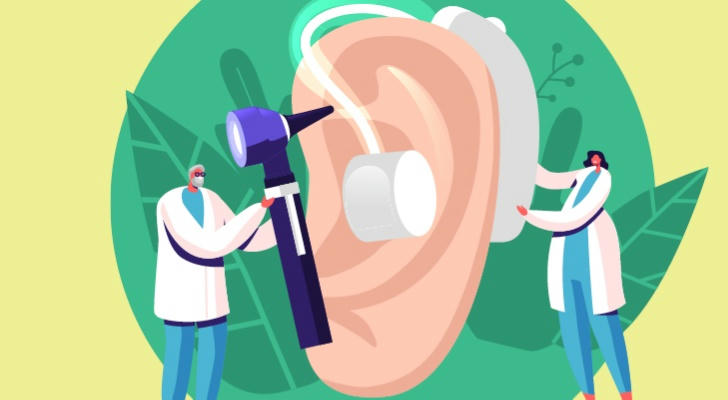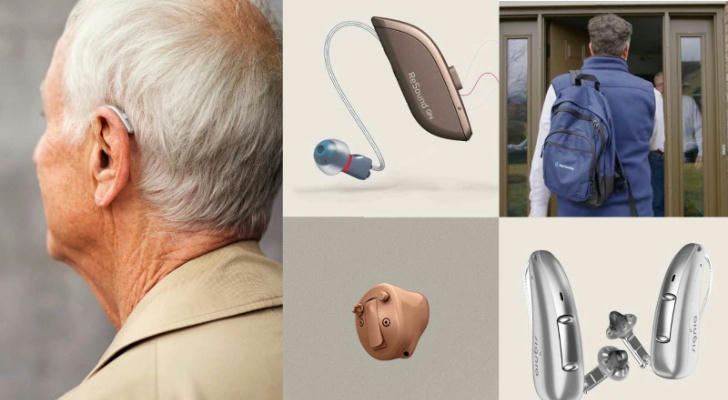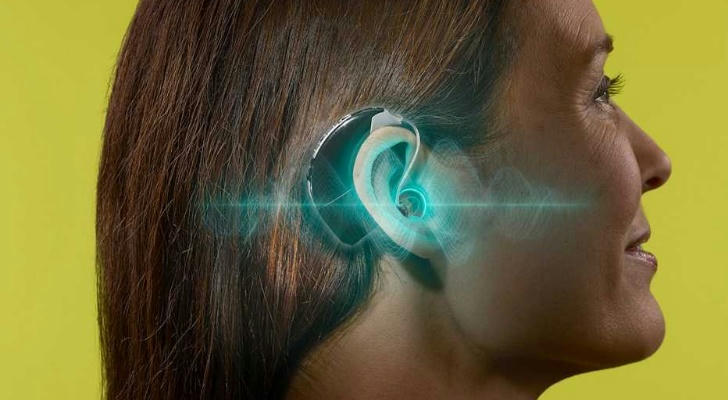Hearing Aids Allow You to Rediscover the Joy of Chatting
Hearing loss can severely impact an individual's ability to communicate, leading to feelings of isolation and depression. However, advances in hearing aid technology have changed the landscape of hearing assistance, allowing users to reconnect with the world around them. By amplifying sounds, improving speech clarity and filtering background noise, hearing aids enable individuals to rediscover the joy of chatting with friends, family and colleagues, strengthening relationships and improving the user's overall quality of life.
The Importance of Clear Communication
Effective communication is fundamental to building and maintaining relationships. When hearing loss occurs, even simple conversations can become challenging. Individuals may struggle to follow discussions, miss out on important details, or feel embarrassed about asking others to repeat themselves. This can lead to withdrawal from social situations and a decline in mental well-being. Hearing aids play a crucial role in reversing these effects by improving speech perception and enabling clearer interactions.
Modern hearing aids are designed with advanced features that enhance speech sounds while minimizing distracting background noise. For instance, many devices utilize directional microphones that focus on sounds coming from in front of the user while reducing noise from other directions. This technology allows individuals to engage more fully in conversations, even in bustling environments like restaurants or gatherings. As a result, users can participate actively in discussions without straining to hear or feeling overwhelmed by competing sounds.

Strengthening Relationships Through Enhanced Listening
The ability to hear clearly is essential for nurturing personal connections. Hearing aids empower users to engage more meaningfully with their loved ones. Improved communication fosters stronger relationships by allowing individuals to share experiences, express emotions, and participate in social activities without barriers.
When individuals with hearing loss begin using hearing aids, they often report a renewed sense of confidence in social settings. The ability to hear conversations clearly can alleviate anxiety about communication mishaps and encourage users to join group discussions or family gatherings. This newfound confidence not only enhances the user’s enjoyment of social interactions but also strengthens bonds with family and friends who appreciate their active participation.
Moreover, clear communication helps reduce misunderstandings that can arise from hearing difficulties. By enabling users to comprehend conversations better, hearing aids minimize the chances of misinterpretation and conflict within relationships. This clarity allows for deeper connections as individuals can share thoughts and feelings more openly without the fear of being misunderstood.

The Psychological Benefits of Hearing Aids
Beyond improving communication skills and strengthening relationships, hearing aids also contribute positively to mental health. Struggling with hearing loss can lead to feelings of frustration, loneliness, and even depression. By addressing these challenges through effective auditory support, individuals can experience enhanced emotional well-being.
Hearing aids reduce the cognitive load associated with trying to decipher sounds and speech in everyday situations. When users no longer have to strain to hear conversations or guess what others are saying, they experience less mental fatigue. This reduction in effort allows for greater focus on engaging with others rather than worrying about missing out on important information.
Additionally, research has shown that untreated hearing loss is linked to cognitive decline over time. By using hearing aids early on, individuals can help maintain their cognitive function and reduce the risk of conditions such as dementia. The act of engaging in conversations stimulates the brain and encourages mental agility—benefits that are crucial for overall health as we age.

Rediscovering Social Engagement
Hearing aids not only improve individual communication but also promote greater social engagement overall. Users often find themselves more willing to participate in activities they may have previously avoided due to difficulty hearing—such as attending concerts, joining clubs, or participating in community events.
With improved auditory capabilities, individuals feel empowered to engage with their surroundings and connect with others who share similar interests. This increased participation helps combat feelings of isolation that can accompany hearing loss and fosters a sense of belonging within social circles.
Furthermore, the ability to enjoy group activities without the barrier of hearing difficulties enhances overall life satisfaction. Whether it’s sharing laughter over dinner with friends or enjoying a lively discussion at a family gathering, hearing aids allow users to fully immerse themselves in these experiences once again.
Case Study 1: John’s Experience with Hearing Aids
John is a 75-year-old man who faced sudden hearing loss after undergoing treatment for a medical condition. The abrupt change in his ability to hear left him feeling anxious and frustrated. As an avid gardener and community volunteer, John found it increasingly difficult to communicate with fellow volunteers and neighbors.
Initially hesitant about using hearing aids due to stigma and concerns about appearance, John eventually decided to visit Acadian Hearing after encouragement from his family. During his assessment, the audiologist explained the benefits of modern hearing aids and how they could enhance his daily interactions.
After being fitted with discreet in-the-ear hearing aids, John experienced a significant shift in his quality of life. “I can hear birds chirping again,” he exclaimed during a follow-up appointment. “And when I’m working in the garden, I can chat with my neighbors without straining to hear them.”
The newfound clarity in sound allowed John to reconnect with his community. He began attending local gardening clubs again and even started leading workshops on sustainable gardening practices. “Hearing aids have opened doors for me,” he shared. “I no longer feel isolated; I’m back in the conversation.”
Case Study 2: Linda’s Path to Social Engagement
Linda is a 72-year-old widow who experienced gradual hearing loss over several years. After losing her husband, she found herself feeling lonely and disconnected from her social circle. Her reluctance to wear hearing aids stemmed from past experiences where she felt they were ineffective.
A friend encouraged Linda to visit Clarity Audiology for a new assessment using advanced technology that could better accommodate her specific needs. The audiologist conducted a thorough evaluation and fitted her with state-of-the-art hearing aids designed for clarity in various environments.
After adjusting to her new devices, Linda reported an immediate improvement in her daily life. “I can finally enjoy conversations without constantly asking people to repeat themselves,” she said. “It’s like a weight has been lifted off my shoulders.”
Linda began attending community events again and even joined a book club where discussions flourished thanks to her improved hearing capabilities. “I never realized how much I loved talking about books until I could hear everyone’s thoughts clearly,” she remarked.
Her experience emphasizes the importance of not only addressing the technical aspects of hearing loss but also fostering social connections that enhance emotional well-being.
Conclusion
The cases of John and Linda illustrate the profound impact that hearing aids can have on individuals experiencing hearing loss. By enabling clearer communication and facilitating social interactions, these devices allow users to regain the joy of chatting and reconnect with their communities.
Hearing aids are more than just devices; they are gateways to improved quality of life for many individuals facing the challenges of hearing loss. As technology continues to advance, more people will have access to solutions that empower them to live fuller lives enriched by meaningful conversations and connections with others.
